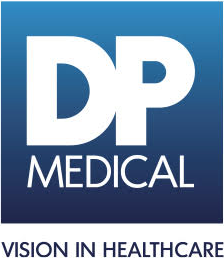Javier Pazos Garcia, Quality Control and Environmental Manager at DP Medical, gives an insight into the process:
DP Medical prides itself on its partnerships with some of the world’s leaders in healthcare innovation.
We’ve worked hard over the years we’ve been in business to forge collaborations with pioneering providers in areas such as ENT, dental and gynaecology, using our market expertise and connections to bring their products to the UK and Irish markets, benefiting healthcare professionals and their patients too, throughout the British Isles.
However, it’s no secret that the list of rules and regulations surrounding the import of medical devices is ever-growing, and navigating the requirements that come with bringing such products to the UK and Ireland can be a tricky business that can take as long as 16 months in some cases.
Thankfully it’s something we do every day at DP Medical, with our team able to manage the process in as little as six months on average, providing our worldwide suppliers with peace of mind and removing any barriers for our customers who want to reap the benefits of our products, without the stress of managing the required paperwork.
Regulatory approval and compliance
Firstly, our team manages the process of securing approval from the Medicines and Healthcare products Regulatory Agency (MHRA) – the authority responsible for overseeing the safety, quality and effectiveness of medical devices placed on the UK market.
This essential step is required to ensure any products entering the UK healthcare system do so lawfully, meeting a set of stringent required standards set out by the Agency.
We’re also registered as an importer under EUDAMED – the EU’s regulatory body for importing medical devices into the EU, including Ireland.
At DP, we oversee the entire process and work hand-in-hand with our suppliers to help them manage every MHRA and/or EUDAMED requirement, securing approval for their device for the UK and Irish markets.
We also have strong expertise in registering products under the MHRA agency portal as part of the UKRP (UK Responsible Person) responsibilities. This new figure was established as an obligatory requirement after Brexit for manufacturers interested in selling products into the UK market.
DP is able to take charge of the whole process minimising both time and cost when it comes to importing products to the UK.
Alongside this, devices also need to adhere to the Medical Devices Regulations 2002 (MDR) which, following the UK’s departure from the EU, are now enshrined in UK law.
Again, our team is highly experienced in working within the MDR and support each of our suppliers with this process to make sure all regulations is met and conformed with, every step of the way.
Certification and conformity
Ensuring the right certification is in place for devices imported to the UK from around the globe is also a major task that can be time-consuming and complex without the right experience and knowledge. At DP, we carry out regular monitoring to ensure our suppliers are up to date with all the regulatory requirements.
The UKCA (UK Conformity Assessed) marking is a UK product marking used for certain goods, including medical devices, being placed on the Great Britain market (England, Wales and Scotland).
However, the UKCA marking is not recognised in Northen Ireland, so devices being sold there require a CE marking at present. This mark is also still accepted in the Great Britain (GB) market until 2028 in the case of MDD-certified products and 2030 in the case of MDR-certified products.
Each conformity certification has its own requirements to meet, with some needing third-party assessment by a UK approved body, and some devices able to be self-certified against the requirements.
DP Medical advises and guides suppliers through this process, too, making sure every device we bring into the UK and Ireland has the certification it needs for the relevant market.
Easing the load
By taking on these regulatory tasks for the suppliers we work with, putting our experience and expertise in this area into practice, we’re easing the load on the healthcare innovators we work with around the globe, minimising both time and cost when it comes to importing products to the UK and Ireland.
The result is a more streamlined pathway to the UK and Irish markets and easier access to the latest groundbreaking devices for our customers, too, benefiting both healthcare practitioners and patients across the country.
For more information regarding the regulation of medical devices in the UK and Ireland, visit https://www.gov.uk/guidance/regulating-medical-devices-in-the-uk#NI
(Photo by NASA on Unsplash)

